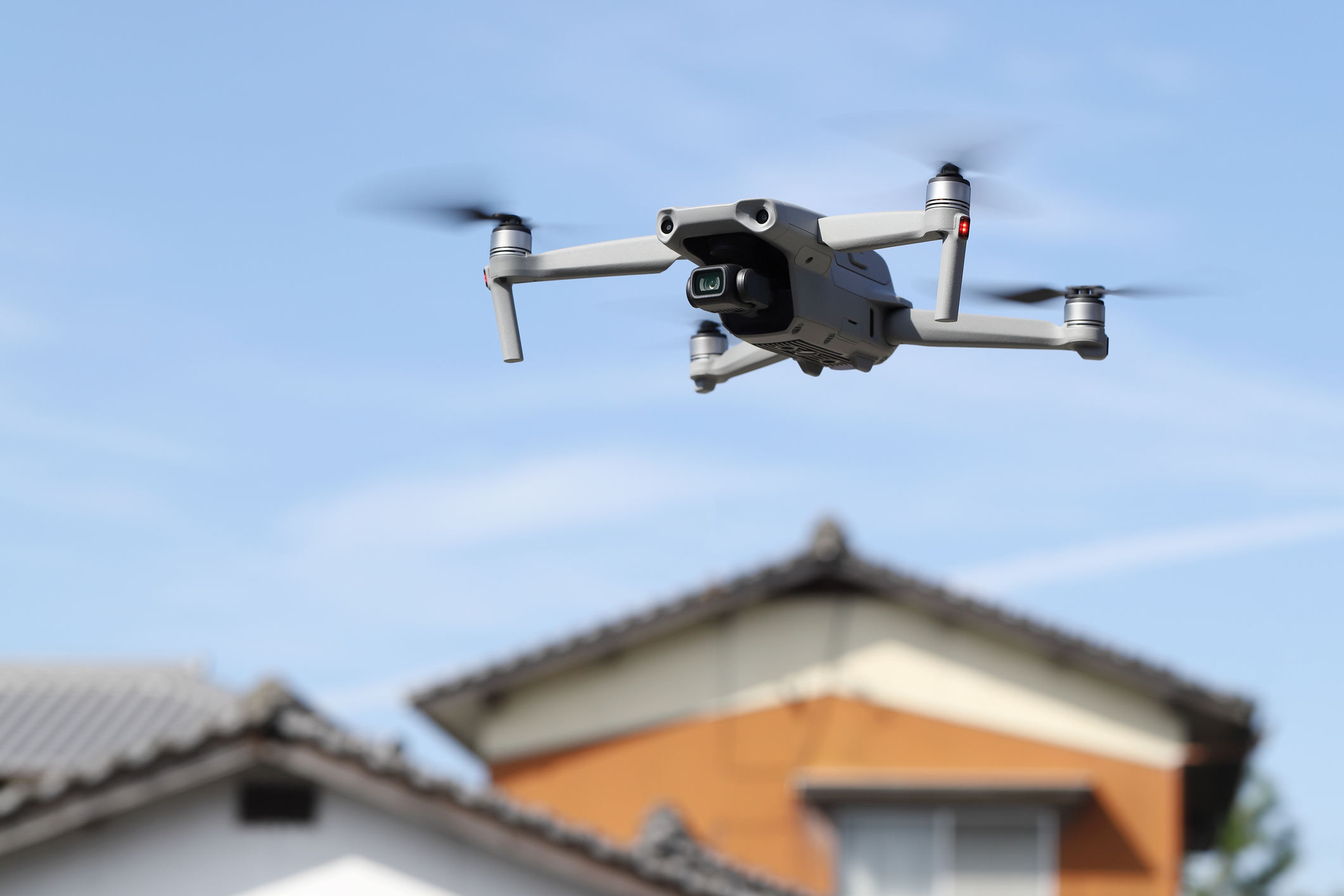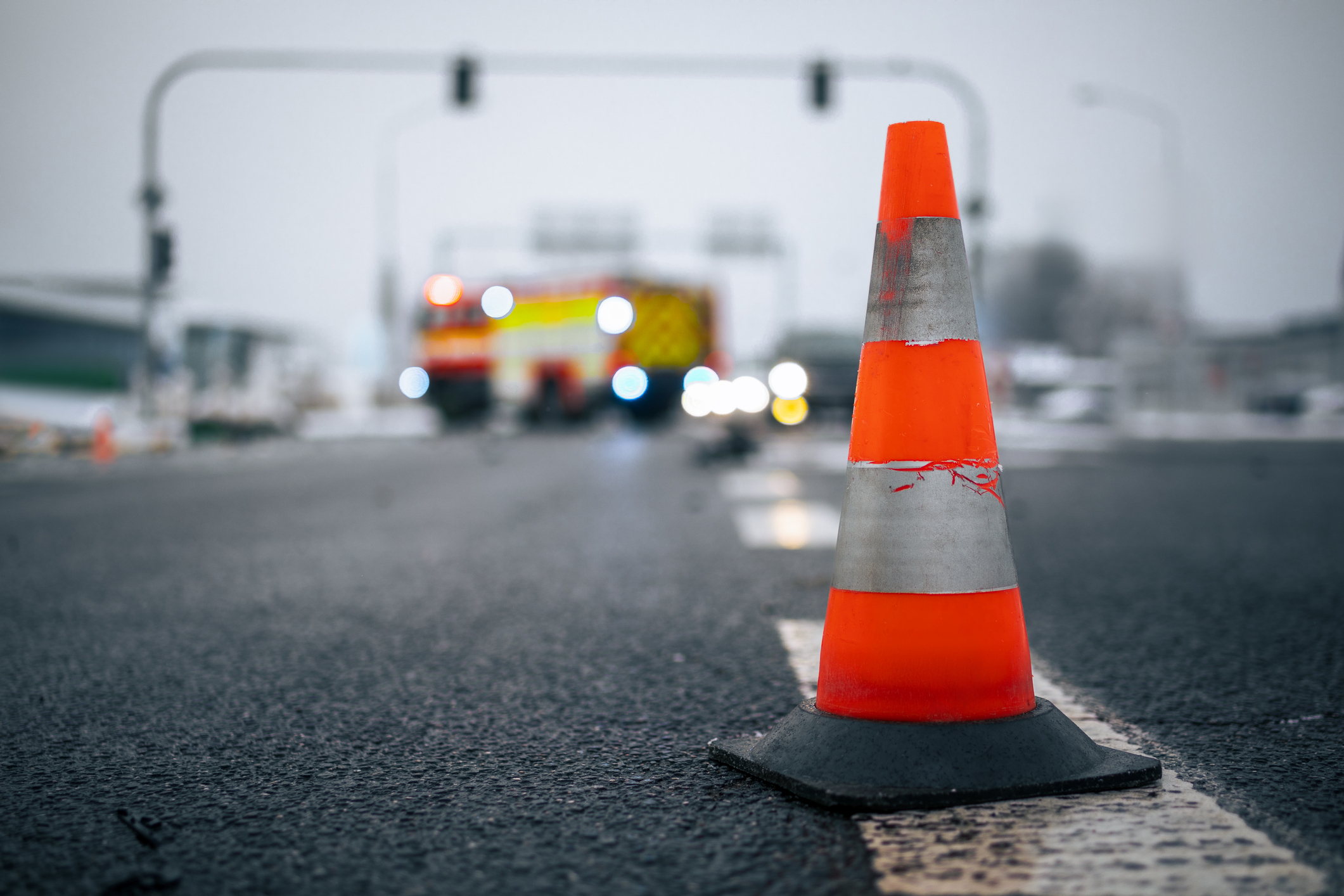What Is Collision Insurance and What Does It Cover?
Collision insurance is often optional for drivers, but there are many good reasons to include it in your policy.

Profit and prosper with the best of Kiplinger's advice on investing, taxes, retirement, personal finance and much more. Delivered daily. Enter your email in the box and click Sign Me Up.
You are now subscribed
Your newsletter sign-up was successful
Want to add more newsletters?

Delivered daily
Kiplinger Today
Profit and prosper with the best of Kiplinger's advice on investing, taxes, retirement, personal finance and much more delivered daily. Smart money moves start here.

Sent five days a week
Kiplinger A Step Ahead
Get practical help to make better financial decisions in your everyday life, from spending to savings on top deals.

Delivered daily
Kiplinger Closing Bell
Get today's biggest financial and investing headlines delivered to your inbox every day the U.S. stock market is open.

Sent twice a week
Kiplinger Adviser Intel
Financial pros across the country share best practices and fresh tactics to preserve and grow your wealth.

Delivered weekly
Kiplinger Tax Tips
Trim your federal and state tax bills with practical tax-planning and tax-cutting strategies.

Sent twice a week
Kiplinger Retirement Tips
Your twice-a-week guide to planning and enjoying a financially secure and richly rewarding retirement

Sent bimonthly.
Kiplinger Adviser Angle
Insights for advisers, wealth managers and other financial professionals.

Sent twice a week
Kiplinger Investing Weekly
Your twice-a-week roundup of promising stocks, funds, companies and industries you should consider, ones you should avoid, and why.

Sent weekly for six weeks
Kiplinger Invest for Retirement
Your step-by-step six-part series on how to invest for retirement, from devising a successful strategy to exactly which investments to choose.
Collision insurance is coverage that protects you and only you. This type of auto insurance helps to pay for the repair or replacement of your car if it's damaged in an accident with another vehicle or object, such as a fence or a tree. If you're leasing or financing your car, collision coverage is typically required by the lender. If your car is paid off, collision is an optional coverage on your car insurance policy.
So, if it’s optional — should you buy the coverage? Although car insurance rates have skyrocketed this year, so has the cost to buy a new or used car. Unless you are driving a junker, you should give it some consideration. You should also pay attention to the value of your car as the years pass.
After a certain point, the coverage doesn't provide the same level of protection it did when your car was new. If you keep a car longer than five or six years or if it has more than 100,000 miles on the odometer, at some point, the costs will outweigh the benefits.
From just $107.88 $24.99 for Kiplinger Personal Finance
Become a smarter, better informed investor. Subscribe from just $107.88 $24.99, plus get up to 4 Special Issues

Sign up for Kiplinger’s Free Newsletters
Profit and prosper with the best of expert advice on investing, taxes, retirement, personal finance and more - straight to your e-mail.
Profit and prosper with the best of expert advice - straight to your e-mail.
What does collision insurance cover?
Not every accident or event that results in damage to you or your car is covered by collision insurance. The purpose of a collision policy is limited and so is the coverage.
COVERED:
- A collision with another vehicle
- A collision with an object, such as a fence, tree or guardrail
- A single-car accident that involves rolling or falling over
NOT COVERED:
- Damage to your vehicle not related to driving such as damage from hail or theft
- Damage to another person's vehicle
- Medical bills for you, a passenger, bystander or another driver
How does collision insurance work?
The deductible. Collision coverage has a deductible, which is the amount you pay out of pocket before your coverage helps pay for your claim. You can typically choose the amount of your collision deductible when you buy coverage. The size of your deductible will impact your monthly premium. A higher deductible should result in a lower premium and vice versa.
Policy limits. Your collision coverage limit is typically the actual cash value of your vehicle or its value minus depreciation. If you car is totaled in a covered collision, you would receive a check for the car's depreciated value, minus your deductible.
To be clear, collision insurance doesn't cover the replacement value of your car. Your reimbursement is based on its depreciated value. This means you may not be able to replace your old vehicle with one of a newer make and model with the proceeds from your claim. You'd have to add some of your own money to do that.
Why do you need collision coverage?
How much would it cost to repair or replace your vehicle if it were damaged or destroyed in an accident? If you couldn't afford to fix your car or buy a new one after a wreck, purchasing collision coverage could give you some peace of mind and keep you mobile.
There are some scenarios where collision insurance would allow you to be reimbursed where a standard auto insurance policy would leave you stranded.
- Suppose you smash your car into a tree or a telephone pole. There's no one to sue. Collision will pay for the damage to your car
- You may be the world's most careful driver, but you cause an accident or are held responsible for one. In that case you can't collect for damage to your car from the other driver. Collision coverage will pay for the damage, even if an accident is your fault
- You have an accident resulting in lengthy legal proceedings. With collision coverage, your insurance company can pay for the repairs to your car and subrogate or take over your claim against the other driver. Your insurance company is ethically, but not legally, bound to fight for enough money to reimburse you for part or all of the deductible
- You get into an accident in which the other driver is clearly at fault but has no liability insurance. Suing could be pointless. The auto policy's uninsured (or underinsured) motorist coverage does not necessarily pay for damage to your car in this situation. Collision coverage does
How much collision coverage do you need?
The amount of collision coverage your policy provides, and its cost, will depend on your car and its value. Premiums are much higher for vehicles that are expensive, accident-prone, easily damaged, frequently stolen or hard to repair. Those that score well for safety and durability often cost much less to insure. How much you will be paid for an accident depends on the nature and extent of the damage, whether new or refurbished parts are used, and other factors.
What is the insurance compensation limit?
Your policyholder is obligated to pay only up to the car's cash value. That means the market value of the car before the accident, minus the salvage value of the damaged vehicle.
For example, say your car was worth $4,000 before the accident and $500 for salvage afterward. The company does not have to pay more than $3,500 in repairs. If the repairs would exceed that amount, the company can take the damaged car and give you the $4,000.
What makes insurance consider a car totaled?
The cutoff for declaring a car to be totaled is usually somewhere around 75% to 80% of the car's retail value, though it may be the cost of repairs plus the car's salvage value. If your car is in exceptional condition compared to most cars of the same make and model, recouping the true value of your car may be more difficult. You'll have to fight to get what you think it's worth.
Should you take the first offer on an insurance claim?
You don't have to accept the claims adjuster's first settlement offer. You can counter with an amount you think is fair. If that fails, take your case to a senior adjuster. Ultimately, you can seek help from your state insurance commissioner, take your case to arbitration, or even file a lawsuit. As your battle gets more and more expensive, you may decide to settle for a better offer than you got to begin with even though it is less than you claimed.
What are policy riders and what can be added?
For an extra premium, some insurers will offer replacement-cost coverage for new or recent-vintage cars as part of collision and comprehensive policy. This coverage provides for the full cost of replacing a new or similar car — not just its cash value before the accident — as long as the insurer considers the car not repairable.
Many companies extend their collision coverage to rental cars (provided they are not being used for business). If you are covered, you can turn down the costly collision damage waiver that car-rental agents sell. Check with your insurance agent to find out whether your policy covers rental cars.
Bottom line
Much like your car, collision coverage becomes less valuable over time, because it will never pay out more than the car’s value. If you own a new or newish car outright and have the financial resources to buy a new car if you have to, you may not want to bother with collision and comprehensive coverage. This can ultimately lower your total car insurance payments by several hundred dollars each year.
If you would find it a hardship or impossible to pay for extensive repairs or replace your car, having a collision policy might be the only way to keep you on the road.
Related Content
Profit and prosper with the best of Kiplinger's advice on investing, taxes, retirement, personal finance and much more. Delivered daily. Enter your email in the box and click Sign Me Up.

Donna joined Kiplinger as a personal finance writer in 2023. She spent more than a decade as the contributing editor of J.K.Lasser's Your Income Tax Guide and edited state specific legal treatises at ALM Media. She has shared her expertise as a guest on Bloomberg, CNN, Fox, NPR, CNBC and many other media outlets around the nation. She is a graduate of Brooklyn Law School and the University at Buffalo.
-
 The Cost of Leaving Your Money in a Low-Rate Account
The Cost of Leaving Your Money in a Low-Rate AccountWhy parking your cash in low-yield accounts could be costing you, and smarter alternatives that preserve liquidity while boosting returns.
-
 I want to sell our beach house to retire now, but my wife wants to keep it.
I want to sell our beach house to retire now, but my wife wants to keep it.I want to sell the $610K vacation home and retire now, but my wife envisions a beach retirement in 8 years. We asked financial advisers to weigh in.
-
 How to Add a Pet Trust to Your Estate Plan
How to Add a Pet Trust to Your Estate PlanAdding a pet trust to your estate plan can ensure your pets are properly looked after when you're no longer able to care for them. This is how to go about it.
-
 Why Your Home Insurance Might Not Protect You If Someone Else Lives There
Why Your Home Insurance Might Not Protect You If Someone Else Lives ThereLetting a relative stay in a second home or inherited property can quietly change your insurance coverage and leave you exposed to costly liability claims.
-
 The 1-Month Rule for Setting Your Car Insurance Deductible
The 1-Month Rule for Setting Your Car Insurance DeductibleThe ideal car insurance deductible balances risk and savings. Here's how to find it.
-
 How Drones Can Affect Your Insurance Coverage
How Drones Can Affect Your Insurance CoverageHow insurers are using aerial imagery to assess homes, the backlash from policyholders and how state regulators are trying to rein in the practice.
-
 Does Your Car Insurer Need to Know All Your Kids? Michigan Cases Raise Question
Does Your Car Insurer Need to Know All Your Kids? Michigan Cases Raise QuestionWho you list on your policy matters more than most drivers realize, especially when it comes to who lives in your home.
-
 Is Home Insurance Tax Deductible?
Is Home Insurance Tax Deductible?With home insurance rates on the rise, you might be hoping to at least claim the cost as a tax deduction. Here's what you need to know ahead of tax season.
-
 Is Mechanical Breakdown Insurance Better Than an Extended Car Warranty?
Is Mechanical Breakdown Insurance Better Than an Extended Car Warranty?More insurers are starting to offer mechanical breakdown insurance to new car owners. What is it and should you buy it?
-
 9 Types of Insurance You Probably Don't Need
9 Types of Insurance You Probably Don't NeedFinancial Planning If you're paying for these types of insurance, you may be wasting your money. Here's what you need to know.
-
 My Teen Crashed His Car, and Now Our Insurance Has Tripled. What Now?
My Teen Crashed His Car, and Now Our Insurance Has Tripled. What Now?Dealing with the costly aftermath of a teen car accident is stressful. Here are your options for navigating it.